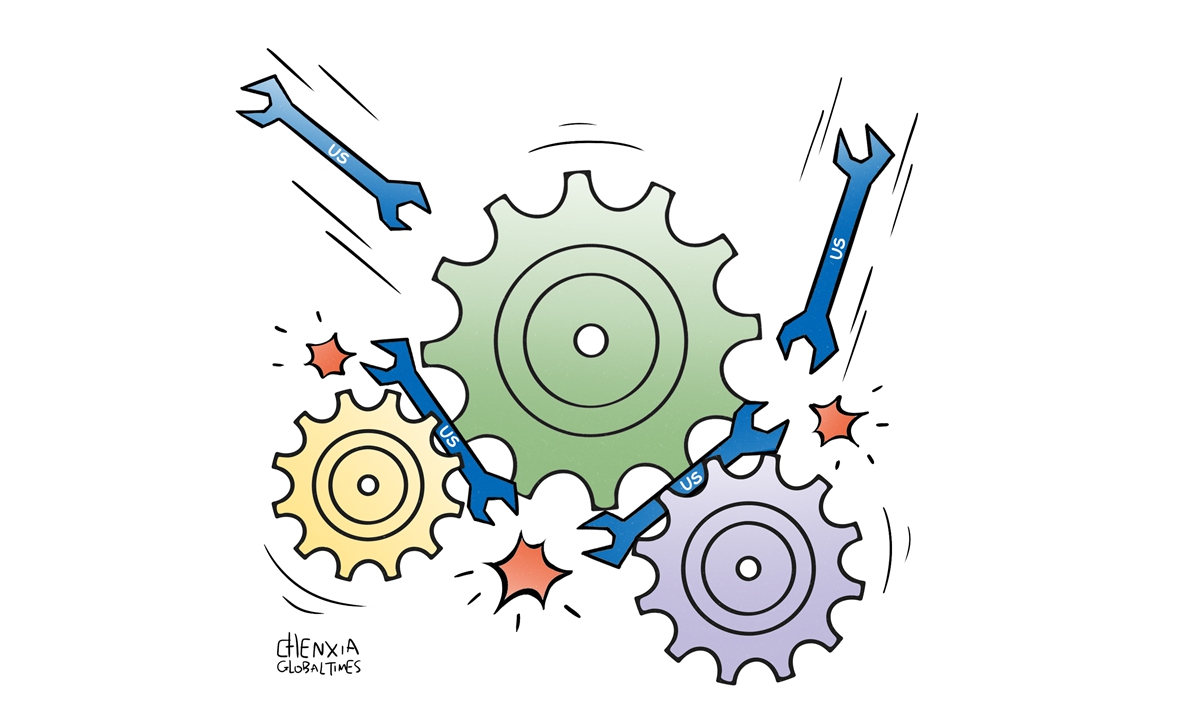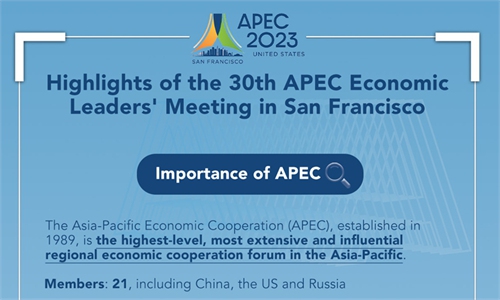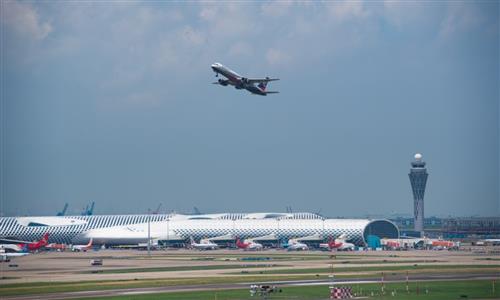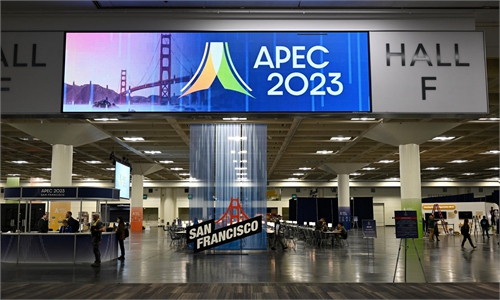
Illustration: Chen Xia/Global Times
A report unveiled by the regional economic forum Asia-Pacific Economic Cooperation (APEC) on Sunday deserves the serious attention of top US officials, as the study exposes the risks of trade fragmentation, which is opposite to Washington's "de-risking" rhetoric.The report came at a sensitive time ahead of this year's APEC Economic Leaders' Meeting, which will be held in San Francisco. It paints an alarming picture: the East Asia and Pacific region is usually considered one of the fastest growing and most dynamic regions in the world, but the newly released study shows that economic growth in the APEC region will fall behind the rest of the world in the coming years as supply chains readjust.
Economic growth among APEC economies would slow to 2.8 percent in 2024 and 2.9 percent in 2025, while the rest of the world is expected to grow 3.1 percent in 2024 and 3.6 percent in 2025, according to the report.
The "de-risking" push is becoming a real risk for APEC economies. Despite repeatedly stating that it does not seek to "decouple" from China in terms of trade and investment, the US is pushing forward the restructuring of industry chains in the name of "de-risking," and tightening export controls against China under the pretext of "national security," which has disrupted global supply chains, caused trade fragmentation, and increased the cost of companies' foreign investment. Some US politicians claim that "de-risking" will help build up resilient, diverse and secure supply chains. However, the opposite is true.
Carlos Kuriyama, director of the APEC Policy Support Unit, said that national security-driven export controls and other restrictions between the US and China are driving up costs in supply chains that were previously optimized for efficiency, according to Reuters. "While a full return to pre-COVID-19 trading patterns is not possible, avoiding further fragmentation is important," Kuriyama added.
These words seem to have been specifically aimed at Washington, which should listen carefully to the APEC Policy Support Unit and stop disrupting the global industry chain. After all, economic growth forecasts for the APEC region are already ringing alarm bells. What the region needs is not "de-risking" but free trade and efficient industry chains.
APEC is a regional economic forum dedicated to promoting free trade and investment, economic growth and development, and cooperation in the Asia-Pacific region. Amid growing uncertainty around the world, many people are looking forward to and highly supporting the promotion of global economic cooperation in this year's APEC Economic Leaders' Meeting.
San Francisco is reportedly taking the APEC meetings very seriously, and has made a lot of preparations for them. This is commendable. However, the true contribution of the US to APEC does not lie in whether it becomes an ideal host for the APEC meetings, but in promoting free trade at this year's APEC Economic Leaders' Meeting, making APEC an important platform for stabilizing the regional economy. In the face of downward pressure on the regional economy, efforts to stabilize economic growth brook no delay. Free trade, instead of the "de-risking" narrative, is the best choice for APEC economies to stabilize their economies.
In November 2014, APEC leaders endorsed the Beijing Roadmap for APEC's Contribution to the Realization of the Free Trade Area of Asia-Pacific. Now, APEC should guide regional economies to return to the track of free trade.
Kuriyama was quoted by media reports as saying that "we need to have cooperation among all of us (because) the world is global, and the problems are global. So, if we work individually, not coordinating all together, it's going to be hard to do things."
It seems that cooperation, rather than "decoupling," is a mainstream view within APEC. It is sincerely hoped that the US can promote cooperation at this year's APEC Economic Leaders' Meeting, instead of becoming a troublemaker that disrupts cooperation among economies in the Asia-Pacific region.
The author is a reporter with the Global Times. bizopinion@globaltimes.com.cn



